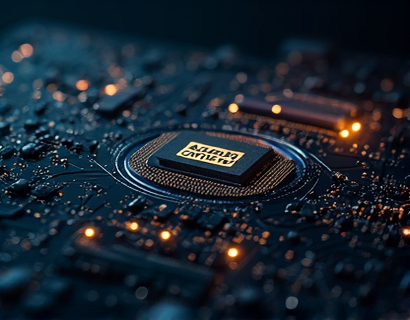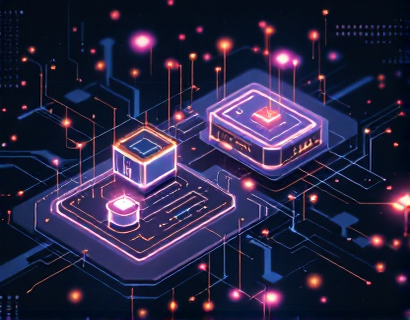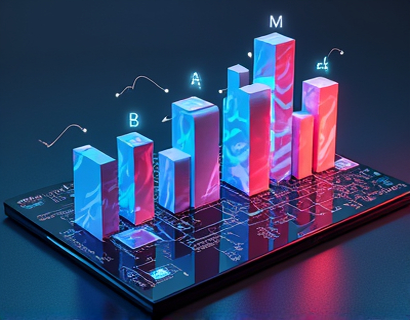Efficient Oracle Management and Blockchain Service Access: Revolutionizing Decentralized Applications
In the rapidly evolving landscape of blockchain technology, the role of oracles and service access has become increasingly critical. Oracles serve as the bridge between the blockchain and the external world, providing essential data and enabling smart contracts to interact with real-world information. However, managing these oracles efficiently and ensuring seamless access to blockchain services remains a challenge for developers and businesses. This article delves into innovative software solutions that address these challenges, focusing on optimizing data integration and enhancing smart contract functionality. By doing so, it aims to provide a comprehensive guide for blockchain professionals to maximize the potential of decentralized applications through advanced oracle management and streamlined service integration.
Understanding the Role of Oracles in Blockchain
Oracles are third-party services that feed external data into blockchain networks, allowing smart contracts to access and respond to real-world information. This data can range from simple values like temperature readings to complex financial data such as stock prices. The importance of oracles cannot be overstated, as they enable smart contracts to perform tasks that require up-to-date external information, thereby expanding the capabilities of blockchain applications.
However, the reliance on external data sources introduces several challenges. Data accuracy, latency, and security are primary concerns. Inaccurate or delayed data can lead to incorrect smart contract executions, while security vulnerabilities in oracles can expose the blockchain to attacks. Therefore, efficient oracle management is crucial to ensure the reliability and trustworthiness of decentralized applications.
Challenges in Oracle Management
Managing oracles effectively involves addressing multiple technical and operational challenges. One of the main issues is data validation. Ensuring the accuracy and integrity of data provided by oracles is essential. Without robust validation mechanisms, smart contracts may execute based on faulty data, leading to unintended consequences.
Another challenge is latency. Real-time data is often required for time-sensitive applications, and any delay in data transmission can render the smart contract's response obsolete. High latency can also impact user experience and the overall performance of decentralized applications.
Security is perhaps the most critical aspect of oracle management. Oracles act as a gateway between the blockchain and the external world, making them potential targets for attacks. A compromised oracle can manipulate data, leading to malicious smart contract executions. Therefore, securing oracles against various attack vectors is paramount.
Innovative Solutions for Oracle Management
To address these challenges, several innovative software solutions have emerged, focusing on efficient oracle management and enhanced smart contract functionality. These solutions leverage advanced technologies such as machine learning, decentralized validation, and cryptographic techniques to ensure reliable and secure data integration.
One such solution is the implementation of decentralized oracle networks. Unlike traditional centralized oracles, decentralized networks distribute the data sourcing and validation process across multiple nodes. This approach reduces the risk of single points of failure and enhances data accuracy through consensus mechanisms. For instance, a decentralized network can aggregate data from multiple independent sources and use cryptographic proofs to verify the authenticity of the data before feeding it into the blockchain.
Machine learning algorithms can also play a significant role in data validation. By analyzing historical data patterns, these algorithms can identify and flag anomalies, ensuring that only reliable data is used by smart contracts. This not only improves data accuracy but also reduces the computational load on the blockchain network by filtering out irrelevant or suspicious data.
Enhancing Smart Contract Functionality
Efficient oracle management directly contributes to the enhancement of smart contract functionality. With accurate and timely data, smart contracts can perform complex operations that were previously impossible. For example, in the realm of decentralized finance (DeFi), smart contracts can execute trades based on real-time market data, adjust interest rates dynamically, and manage collateral more effectively.
Moreover, the integration of oracles with advanced features like event triggering and conditional logic allows smart contracts to respond to specific events in the external world. For instance, a smart contract can automatically execute a payment when a sensor detects a certain condition, such as temperature exceeding a threshold in a supply chain scenario. This level of automation and responsiveness is crucial for building sophisticated and user-friendly decentralized applications.
Seamless Service Integration
Beyond oracle management, seamless integration with various blockchain services is essential for the success of decentralized applications. This includes not only data oracles but also other services such as payment gateways, identity verification, and storage solutions. A comprehensive platform that offers integrated services can significantly simplify the development process for blockchain professionals.
One approach to achieving seamless service integration is through the use of middleware solutions. These middleware platforms act as intermediaries, abstracting the complexities of different blockchain services and providing a unified interface for developers. This abstraction layer ensures that developers can focus on building the core functionality of their applications without getting bogged down by the intricacies of each service.
Another key aspect is the standardization of protocols and APIs. Standardized interfaces make it easier for different services to communicate and work together, reducing the development time and effort required to integrate multiple services. This standardization also promotes interoperability, allowing applications to leverage a broader ecosystem of blockchain services.
Case Studies and Real-World Applications
To illustrate the impact of efficient oracle management and seamless service integration, consider a few real-world applications. In the supply chain industry, a decentralized application can use oracles to track the movement of goods in real-time, ensuring transparency and traceability. Smart contracts can automatically trigger payments when goods reach specific checkpoints, based on data provided by trusted oracles.
In the healthcare sector, patient data can be managed using decentralized applications that ensure privacy and security. Oracles can integrate with external health records systems, allowing smart contracts to access and verify patient information as needed, while maintaining compliance with data protection regulations.
These applications demonstrate the potential of advanced oracle management and service integration to transform various industries by leveraging the power of blockchain technology.
Future Trends and Considerations
As the blockchain ecosystem continues to evolve, several trends and considerations will shape the future of oracle management and service integration. One significant trend is the increasing adoption of cross-chain interoperability solutions, which enable oracles and services to operate across multiple blockchain networks. This will further enhance the flexibility and reach of decentralized applications.
Another important consideration is the regulatory landscape. As blockchain technology gains mainstream acceptance, regulatory frameworks will play a crucial role in shaping the development and deployment of oracles and blockchain services. Compliance with these regulations will be essential for the long-term sustainability of decentralized applications.
Lastly, the ongoing research into more efficient consensus mechanisms and scalability solutions will impact the performance and reliability of oracle networks. As these technologies mature, we can expect oracles to become even more robust and integral to the blockchain ecosystem.
Conclusion
Efficient oracle management and seamless service integration are fundamental to unlocking the full potential of blockchain technology. By addressing the challenges of data accuracy, latency, and security, innovative software solutions can significantly enhance the functionality and reliability of decentralized applications. For blockchain developers and businesses, adopting these advanced solutions is not just a technical necessity but a strategic advantage in the competitive landscape of decentralized technologies. As the ecosystem continues to evolve, staying ahead in oracle management and service integration will be key to building robust and innovative blockchain applications.










































